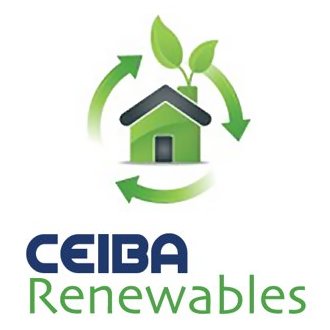Energy storage is a hot topic these days, especially in Scotland where the push for renewable energy is stronger than ever. But let’s face it, the world of energy storage can be a bit intimidating. There’s a lot to consider: What kind of storage system do you need? What’s the best choice for your home or business?
Whether you’re a homeowner looking to reduce your carbon footprint or a business owner aiming to make your operations more sustainable, this guide will provide the insights you need to make an informed decision.
What is a battery storage system, in a renewable energy setting?
To put it simply, a battery storage system is a device that allows renewable technologies (like Solar PV or wind turbines, to name but a few) to store the energy they create, so that it can be used at a time that’s most useful.
Without a battery storage system, the energy that’s generated would have to be used right away, whether it was needed or not.
Customers who are looking to integrate battery storage into their Solar PV system, will find they unlock a number of benefits, like uninterrupted power supply, increased independence from the grid, and lower energy bills. You can find out more about the benefits of battery storage and Solar PV in our dedicated blog.
How to Choose the Best Battery Storage System
There are several types of battery storage systems available, and choosing the right one for your needs can be a complex task. The most popular battery storage technologies include:
- Lithium-ion batteries: Currently the most common and widely used battery storage technology, lithium-ion batteries boast a high energy density, long cycle life, and operate very efficiently. They are well-suited to residential and commercial installations due to their compact size, lightweight structure, and low maintenance requirements.
- Lead acid batteries: A tried-and-tested technology, lead-acid batteries provide cost-effective energy storage solutions. However, they have a lower energy density, shorter cycle life, and require regular maintenance compared to lithium-ion batteries – which makes them a less popular choice with consumers.
- Flow batteries: Flow batteries employ a unique, liquid-based energy storage method, that makes them a scalable and long-lasting energy storage option. Although typically associated with larger installations, flow batteries are increasingly being explored for residential uses.
When choosing a battery storage technology, consider factors such as space, maintenance requirements, efficiency, and budget to ensure an ideal fit for your home or business in Scotland.
Understanding the lingo
When choosing the right battery storage solution for you, you might hear a number of terms mentioned. The ones to pay attention to, are listed below:
- Capacity: The capacity, measured in kilowatt-hours (kWh), signifies the amount of energy that can be stored in the battery. You need to make sure that your chosen battery storage system has sufficient capacity to cater to your energy needs during times when solar generation is low. The best way to figure this out – is to speak to an expert – like the Ceiba Renewables team.
- Depth of Discharge (DoD): DoD refers to the percentage of the battery’s total capacity that can be discharged before it requires recharging. Higher DoD values allow you to use more of the stored energy, increasing your battery’s effectiveness and extending its lifespan. A rough rule of thumb is, the higher the DoD, the better.
- Round-trip efficiency: Assess the battery’s round-trip efficiency, which indicates the percentage of energy retained during the charge and discharge process. Higher efficiency values result in more stored energy available for use.
As well as assessing a battery’s performance against each of these metrics, you also need to find one that works for your budget. Remember that as well as the cost of the battery system, you’ll also have installation, permit, and warranty costs. When speaking to customers we often calculate the cost per kilowatt-hour (kWh) for each system, which gives customers an idea of the savings available, against the cost for implementing each system. With our help, we’ll find the right one to suit your needs, that’s financially manageable for you too.
Batter storage systems really are the key to making the most of your renewable technology. And if you’re considering Solar PV – battery storage will give you higher cost savings and better energy use. We’re here to help you navigate the complexities of battery storage systems in Scotland, ensuring seamless integration into your renewable energy setup. Get in touch with Ceiba Renewables today to learn more about our battery storage solutions – it all starts with a conversation, one that we’re more than happy to have.

